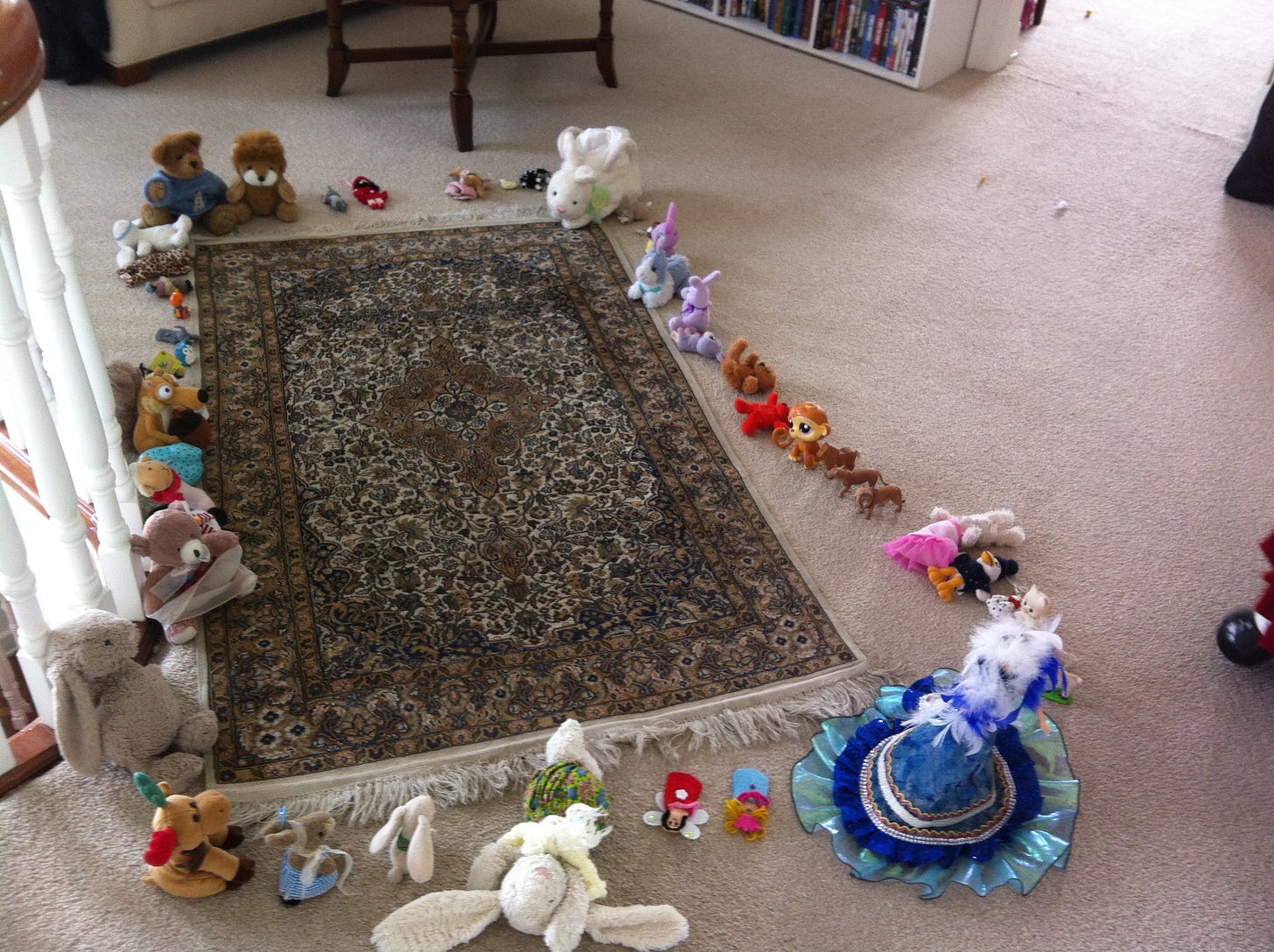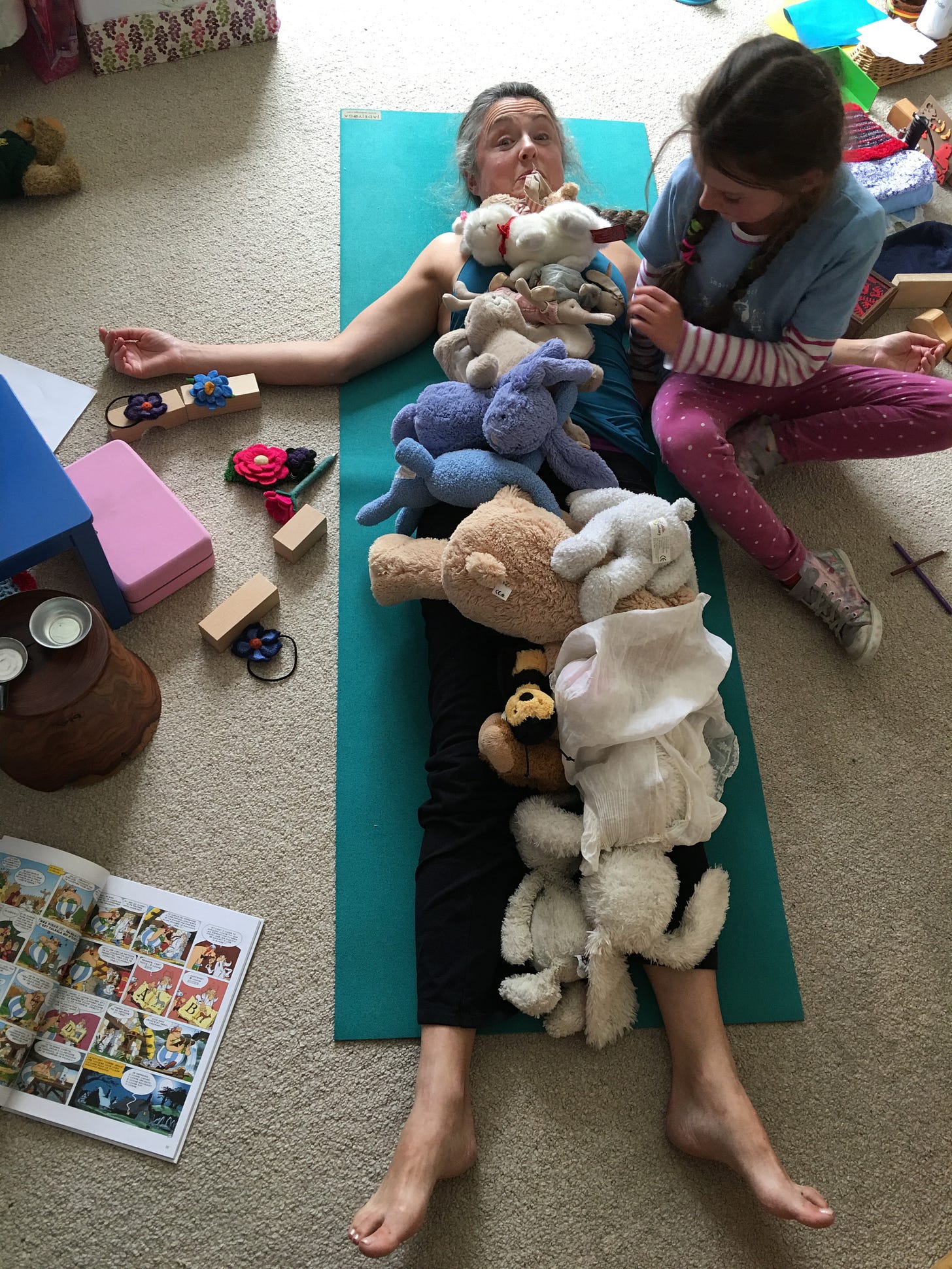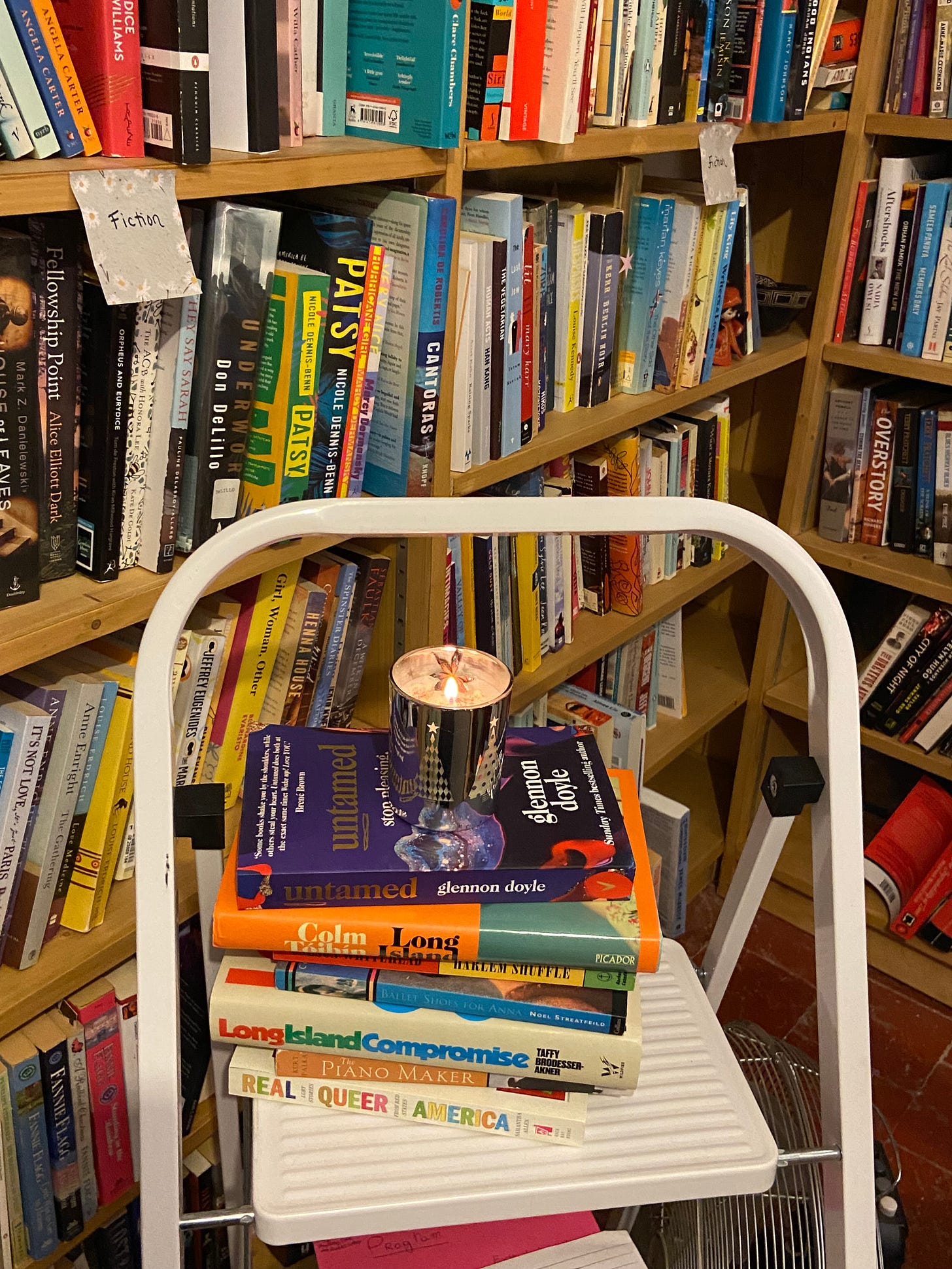On building a home when the walls keep changing
After a brief cancer update, I offer an essay on creating a sense of home while constantly changing countries.
I’ve been avoiding cancer updates the last couple of weeks because there is no big news, and because I am so very tired of writing about cancer and chemotherapy. My oncologist has lowered my steroids significantly, meaning I am now exhausted all the time. I’ve been too sick to work for about four days a week lately, or manage a long walk. It frustrates me, as don’t want to waste precious hours of my life asleep! At the same time, I accept this is what my body requires. But on the three days a week I feel okay, I feel hugely pressured to get everything done before chemo takes over again.
My chemo is now on Thursdays, meaning my worst days are the weekends, when Theo is home. I want to be my full self with her, not exhausted and irritable. (Wanting impossible things! Still! Always!) Despite this, we’ve had fun doing Meisner acting exercises together, which always end in laughter. Talking about books and theatre with my daughter remains one of my greatest joys. Last night while I was cooking dinner, she rang to tell me that she had just finished reading The Glass Menagerie, and that it had destroyed her emotionally. She needed to talk about it. This is almost all I want from my child, that she should ring me when a play has devastated and moved her.
Monday, I have an appointment with my oncologist at Gustave Roussy in Paris. I am hoping she will have some concrete ideas for treatment I can pursue post-taxol—given that my oncologist here has suggested that no one goes into remission after this, that it is just prolonging my life for the time I am on it. That as soon as it stops, the cancer will return. I am holding out hope for a miracle, of course. I hope Dr. Leary will have one.
I have also received permission to skip a week of chemo in order to go with Theo to London for a week over her school holiday this month. She’s enrolled in a course at the National Youth Theatre. She did one last year and loved it, and we had a fabulous time in London, seeing theatre and improv and friends. So I am delighted to be able to go with her again, and hope I will have enough energy to make the most of it.
Now that the breaking news is out of the way, I thought that this week I would share with you another essay I wrote in 2015, when we were still moving around the world and my daughter was young, about how we have inhabited the liminal spaces of our lives.
Our invisible house
On building a home when the walls keep changing
When I left the United States in 2006, I was supposed to be gone for just a year. That’s how long my contract was in Yemen, where I had taken a job as editor in chief of a newspaper. But secretly, I felt that once I had embarked on a life abroad, the life of adventure I had always longed for, I would never come back.
I was right. It has now been nearly nine years since I left. In that time I have lived in tiny apartments and grand houses, big cities and small cities, developed countries and less developed countries. I have accumulated languages, foods, tropical diseases, and an ever-expanding spiral of friends. Every day, something surprises me. Every day, something frustrates me. In spite of all this, I have never felt more consistently at home.
We move so often because my husband—whom I met at the end of my first year in Yemen—is a British diplomat. Every few years, he has a new assignment. And every so often, something else happens, like we get evacuated. Fortunately, I have a portable career, so I haven’t had to give up rewarding work like so many “trailing spouses” (how I loathe that term!) must do to keep their families together. Even more fortunately, we all thrive in unfamiliar environments.
But we do not have the luxury of growing attached to the various structures that shelter us. We cannot grow overly fond of the view from the sofa or the sofa itself. We cannot fall in love with our bedroom or bathtub or curving staircase. We have no old, familiar, womblike reading chair. Yet we have managed to find ways, as a family, to carry our home with us.
I am not talking about furniture or walls. In fact, in the nine years we’ve been together, we haven’t managed to buy furniture. We do not own a television, a sofa, a dining table, or a bed. The most expensive things we carry with us are our laptops. If everything we owned disappeared on one of our moves, there is very little I would miss.
Rather, I find a sense of home in the precise way my husband Tim arranges his constellation of toiletries along the left side of every sink we use; in the way he unpacks everything from his suitcase and puts it into drawers, even when we are in a hotel for just one night; in his consistent ease in strange surroundings. I find a home in his methodical nature; in the way he orders his bookshelves, in his infinite tolerance for the eccentric. These things are always with us.
I find home in small rituals. An early riser, I have brought Tim a cup of tea almost every morning of our lives in Yemen, Jordan, London, Bolivia, and everywhere we have traveled along the way. There is home in that cup of tea. There is home in the mere carrying of that cup of tea.
I find home in the daily yoga practice I take with me from the sticky tiles of a hotel in the jungle to the beige carpet of a rented house to the wooden boards of a room at a writing residency. Sphinx pose is always there for me.
Our seven-year-old daughter Theadora finds a home in books, in the stories we tell her, and in a vast imaginary country she visits regularly. She makes a home with the tribe of rabbits she carries wherever we go and arranges at the foot of her bed. Every time we arrive in a new home or hotel room, the first thing she does is arrange her rabbits around her bed. She has to do this before unpacking anything else, before dinner, before exploring.
Her bed itself and the walls around her constantly change, but Bertolt, Tamana Jay, and Thunderstorm will always be there, soft, comforting, and entertaining. Like us, she finds a home in our routines; every Saturday we make pancakes together, no matter where we are. If we are making pancakes, we must be home.
All three of us construct homes for ourselves out of books; we lug cartons of them across continents to keep their words close. Who needs furniture when you have the Oxford English Dictionary?
We build webs of friends who continue to support us from across continents and oceans as we support them. Technology allows us continued connection. We try to log onto Skype every week here in London so Theadora can see her best friend in Bolivia. I love watching the two girls play dress up or make Halloween decorations together, cutting out pumpkins as they chat via computer screens 6,209 miles apart.
There is home even in the ritual of packing. We could fill suitcases in our sleep. Packing is familiar, like a security blanket. So is going through airport security. So are airplanes. They are things we do together.
None of it is easy. We are always mourning
people and countries we have left behind. After four months in London, Theadora still longs for Boliva. We are often tangled in visa applications and foreign bureaucracies. We are always learning new languages, customs, religions, and politics.
But is there is nowhere we regret having lived. No journey we regret having taken. Always, I find home at my laptop, writing. In these words.
Above all, I find a home in Tim and Theadora. In our continually changing surroundings, we three are the only constant. Our home is made of us. The rest is details.
—Jennifer Steil








Bertolt, Tamana Jay, and Thunderstorm are wonderful names for rabbits.
How cool that your husband is meticulous about arranging his toiletries and, with no training whatsoever, your child is meticulous about arranging her rabbits—seeing and describing genetic connection without saying it 😍